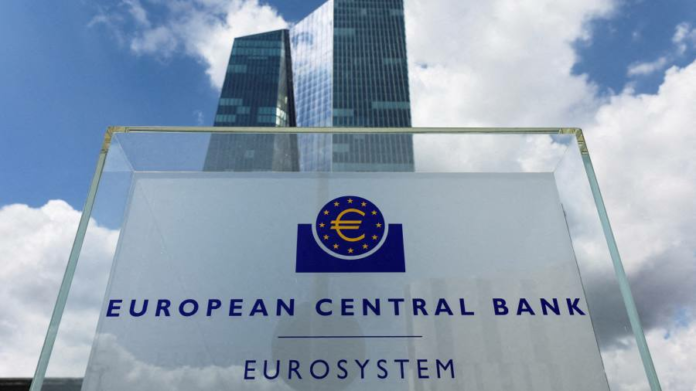The eurozone’s repo and money markets are becoming more dysfunctional and threatens the European Central Bank’s ability to push its monetary policies through markets, an influential trade group has warned.
The International Capital Market Association, which represents the bond market’s biggest traders, said it had become concerned about the functioning of Europe’s €10tn repo markets because of a scarcity of liquid assets, and excess liquidity in the region’s banking system.
ICMA’s warning comes amid fears climbing global interest rates and poor trading conditions have heightened the risk of market instability.
UK gilt markets descended into chaos last month after the government’s ill-fated “mini” Budget of unfunded tax cuts sharply worried investors, sending their yields soaring — although this was because of a lack of buyers of gilts, rather than excess liquidity.
Repo markets are a crucial source of short-term funding and collateral for banks, helping them meet margin requirements for derivatives trades. The European Central Bank also sees it as a critical mechanism for transmitting monetary policy.
ICMA said that while the imbalance in eurozone repo markets has led to ructions, notably in March 2020 at the onset of the coronavirus pandemic, the normalisation of interest rates increased the potential for bigger and more frequent market dislocations.
“Rising dysfunction in the market could imperil the transmission of monetary policy,” ICMA wrote in a letter to the ECB’s director-general of market operations, signed by division heads at BlackRock, Axa Investment Managers, Barclays and UBS.
“We’ve moved from an environment where you’ve needed to inject liquidity on a large scale to questioning at what pace that should be reduced,” Bryan Pascoe, chief executive of ICMA, told the Financial Times. “There are contradictory pressures of rates needing to move higher while avoiding demand destruction. It’s a fine balancing act.”
ICMA recommended the ECB consider other measures to help markets, such as a reverse repo facility similar to the one introduced by the Federal Reserve in 2013. In it, the US central bank sells securities to counterparties and buys them back later, similar to a short-term loan.
ICMA also highlighted the Swiss National Bank’s plan to issue tradable Treasury bills, saying it was simpler to create than a reverse repo facility and “would have the additional advantage of not tying up bank balance sheets”.
Germany’s debt agency this month sought to address the scarcity problem by creating more government debt securities that it can lend out to investors via repo markets.
The ECB has also taken some steps to address the issue, increasing the amount of cash that can be used as collateral in its securities lending facility in December and removing a zero per cent cap on interest for government deposits last month.
The central bank also discussed the idea of launching a reverse repo facility or issuing its own debt certificates at a meeting last month of its money market contact group, a forum for discussions with financial institutions. But the ECB has since pushed back against the idea that it is planning to imminently adopt such proposals.
The ECB, which declined to comment on the ICMA letter, has acquired a €5tn portfolio of mostly government bonds over the past decade, which has increased excess liquidity at banks and created a scarcity of high-quality securities.
This has put downward pressure on risk-free rates at a time when the central bank is trying to raise them. Konstantin Veit, portfolio manager at Pimco, said: “As there are limited safe options out there to invest in, this leads to collateral scarcity and drives a large part of the money market to trade well below the ECB’s deposit rate.”
Veit said he expected the ECB to consider creating a similar vehicle to the Fed’s reverse repo facility or to even issue its own debt, while adding that such a move was not imminent.
ICMA warned “pressures on short-term markets and collateral scarcity could be further accentuated” by the changes expected to be announced by the ECB this week to its €2.1tn of ultra-cheap loans to banks, known as targeted longer term refinancing operations (TLTRO).
The ECB is expected to encourage banks to repay a big chunk of TLTRO loans in December by making them less attractive. However, officials think this should help to ease the scarcity of high-quality bonds by freeing up the collateral pledged against the loans and reducing the €5tn of excess liquidity in the euro area.






